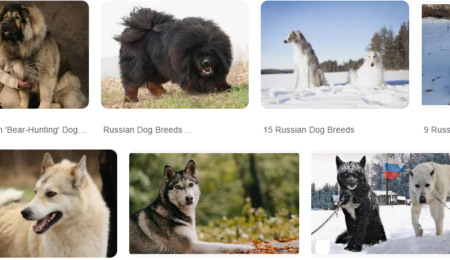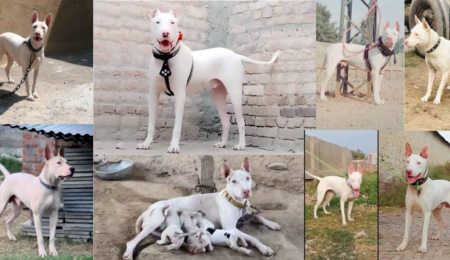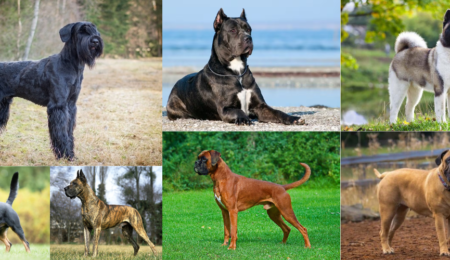In India, certain dog breeds are restricted or banned in various states and municipalities due to their perceived aggressive nature. The regulations can vary widely, but 15 breeds commonly restricted include:
1. Pit Bull Terrier
The ban on Pit Bull Terriers in certain parts of India can be attributed to concerns over their perceived aggression and potential danger to the public. Here are some key reasons:
- Aggression and Safety Concerns.
- Media Influence.
- Lack of Proper Training and Socialization.
- Public Pressure.
- Legal and Regulatory Framework.
The actual enforcement and specifics of such bans can vary significantly across different states and municipalities in India. Not all regions have the same restrictions, and some places might have more stringent laws than others.
2. Dogo Argentino
The Dogo Argentino is banned in India primarily due to its history and potential for aggressive behavior. Here are some key reasons:
- Aggressive Traits.
- Past Incidents.
- Regulation of Dangerous Breed
- Training and Handling Requirement
- Protective Legislation.
Laws and regulations are in place to protect citizens and ensure that potentially dangerous animals are kept under control. Banning certain breeds is a precautionary measure to prevent harm.
3. Rottweiler
Rottweilers are not outright banned in India, but there are certain regulations and restrictions regarding their ownership. These restrictions are primarily due to concerns about the breed’s potential for aggression and the safety of the public. Here are some reasons why there are restrictions on Rottweilers in India:
- Aggressive Behavior.
- Incidents and Attacks.
- Legal and Municipal Regulations.
- Public Safety Concerns.
It’s important for potential Rottweiler owners in India to be aware of local regulations and ensure they are able to provide proper training, socialization, and care for their dogs to prevent any aggressive behavior.
4. American Bulldog
The American Bulldog is not specifically banned throughout India, but restrictions on certain breeds can vary by state or municipality. Indian laws concerning dog breeds often focus on perceived aggressiveness or public safety concerns rather than specific breeds. Breeds like the American Bulldog, Pit Bulls, and others may face restrictions in some regions due to concerns over their potential for aggression or incidents involving these breeds in the past. It’s essential to check with local authorities or pet regulations specific to your area for accurate and up-to-date information.
5. Presa Canario
The Presa Canario dog breed, along with several others, is banned in India under the country’s import laws for pets and animals. This ban is primarily due to concerns over the breed’s potential aggression and its classification as a potentially dangerous breed in some jurisdictions. Such regulations aim to prevent incidents involving dangerous animals and to safeguard public safety and animal welfare.
6. Fila Brasileiro
Here are the key points regarding why the Fila Brasileiro was banned in India:
- Temperament and Aggression.
- Incidents of Attacks.
- Government Regulation.
- Breed Classification.
These factors combined led to the decision to ban the Fila Brasileiro in India, aiming to prevent potential risks to public safety and promote responsible pet ownership.
7. Japanese Tosa
The Japanese Tosa, along with several other breeds, was banned in India under the “Exotic Breeds Importation Rules” of the Indian government. This ban was primarily enacted due to concerns over the breed’s potential aggressiveness and the risks associated with owning large, powerful dogs that may not be suitable for urban environments or inexperienced owners. The ban aims to prevent incidents involving these breeds and ensure public safety.
8. Boerboel
In India, regulations concerning dog breeds can vary by state and municipality. Here are some key points regarding why certain dog breeds, including Boerboels, might face restrictions or bans:
- Aggressiveness and Size: Boerboels are large and powerful dogs known for their protective instincts.
- Incidents and Public Perception: High-profile incidents involving dog attacks can influence public opinion and lead to calls for breed-specific legislation.
- Local Regulations: Different states or cities in India may have their own laws and regulations regarding pet ownership, including specific restrictions on certain breeds deemed dangerous.
- Animal Welfare Concerns: Some regulations aim to ensure responsible pet ownership and prevent issues related to neglect, abuse, or abandonment of large and potentially challenging breeds.
- Enforcement and Implementation: The enforcement of these regulations can vary, and local authorities may have discretion in how strictly they enforce breed-specific bans or restrictions.
If you’re considering owning a Boerboel or any other large breed in India, it’s advisable to research local regulations thoroughly and ensure compliance to avoid any legal issues.
9. Neapolitan Mastiff
The Neapolitan Mastiff is not specifically banned in India as a breed. However, certain municipalities or local authorities in India may have restrictions or bans on certain breeds or types of dogs due to concerns about aggression or public safety. These restrictions can vary widely across different regions and cities within the country. It’s always a good idea to check with local authorities or pet ownership regulations in specific areas to understand any breed-specific regulations that may apply.
10. Wolfdog
In India, the breeding, owning, and sale of certain breeds of dogs, including Wolf dogs, is regulated under the Prevention of Cruelty to Animals Act, 1960. The legislation aims to prevent cruelty to animals and ensure their welfare. Wolf dogs, which are hybrids between domestic dogs and wolves, may pose challenges in terms of behavior, care, and public safety. Therefore, to protect both animals and the public, regulations in India may restrict or prohibit the ownership and breeding of such hybrid animals.
11. Bandog
why certain breeds might be restricted or banned in some places, here are some common reasons:
- Public Safety Concerns.
- Perception of Dangerous Breeds.
- Lack of Responsible Ownership.
- Legal Liability.
- Animal Welfare.
These points generally contribute to discussions and decisions around breed-specific regulations or bans in various regions.
12. Cane Corso
As of my last update, there isn’t a specific nationwide ban on Cane Corso dogs in India. However, different states or local municipalities may have their own regulations regarding certain dog breeds. Bans or restrictions on specific breeds often stem from concerns about public safety or incidents involving aggressive behavior. It’s essential to check with local authorities or veterinary professionals for the most accurate and current information regarding pet ownership regulations in specific regions of India.
13. Bulldog
Bulldogs are among the dog breeds that are sometimes restricted or banned in certain countries due to concerns about their health and well-being in local climates, as well as potential aggressiveness. In India, specific regulations or restrictions on dog breeds can vary by state or municipality. It’s essential to check local laws and regulations regarding pet ownership and specific breed restrictions if you’re considering owning a Bulldog or any other breed in India. These regulations are typically in place to ensure the safety and welfare of both the animals and the public.
14. Staffordshire Bull Terrier
Structured overview regarding the ownership of Staffordshire Bull Terriers in India:
Ownership of Staffordshire Bull Terriers in India.
-
Regulatory Variability
– State and City Regulations: Laws regarding dog ownership, especially for breeds like Staffordshire Bull Terriers, vary widely across different states and cities in India.
– Breed Classification: Some regions classify Staffordshire Bull Terriers as “dangerous dogs” due to their physical traits and historical associations.
-
Public Safety Concerns
– Reasons for Regulation: Regulations are often intended to address concerns about aggressive behavior and public safety incidents involving certain breeds.
– Community Impact: Public perception and safety considerations influence local regulations.
-
Local Authority Guidelines
– Compliance Requirements: Owners may need to comply with specific rules such as leash laws, muzzling requirements, and obtaining permits or licenses.
– Penalties for Non-Compliance: Failure to adhere to regulations can lead to fines, confiscation of the dog, or legal consequences.
-
Responsible Ownership
– Research and Awareness: Prospective owners should research local laws and guidelines before acquiring a Staffordshire Bull Terrier.
– Behavioral Training: Emphasizing responsible pet ownership and behavioral training can mitigate concerns about aggressive behavior.
-
Community Engagement
– Advocacy and Education: Community engagement and education initiatives can promote responsible pet ownership and dispel misconceptions about certain breeds.
Understanding and adhering to local regulations is crucial for potential owners of Staffordshire Bull Terriers in India to ensure both legal compliance and responsible pet ownership.
Bullmastiff
As of my last update, Bullmastiffs are not banned in India. However, regulations concerning dog breeds can vary by region or municipality within a country, so it’s essential to check with local authorities or animal control for the specific rules and restrictions in your area.
Conclusion:
These restrictions are often based on local municipal regulations, so it’s important to check with local authorities for the most accurate and up-to-date information regarding specific dog breed bans or restrictions in a particular area of India.





















Leave a Reply